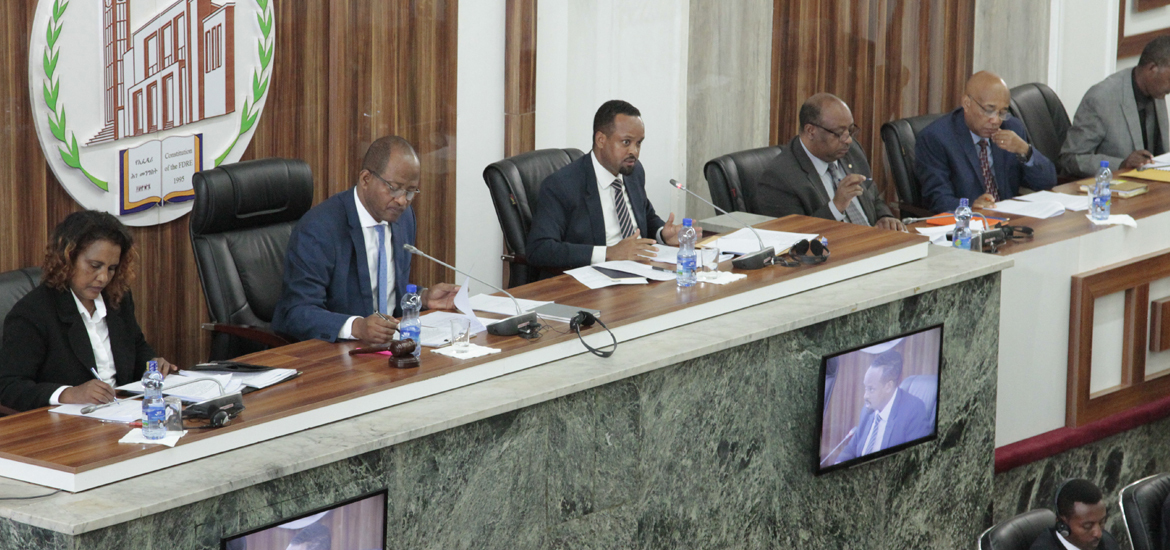Foreign debt remains a concern at USD 27 billion
In the face of an ongoing political volatility, the macroeconomic performance of Ethiopia, exacerbated by soaring double digit inflation and decline in export earning, is becoming a matter of grave concern to the nation, Ministry of Finance said this week.
During an extra-ordinary session of the House of People’s Representatives (HPR) held on Tuesday, the Minister, Ahmed Shida told the House that the first ten months of the current fiscal year has seen a sharp decline in the export earning of the country performing 8.3 percent lower than the previous year’s performance.
Despite “a very tight fiscal policy” that has been implemented by the authorities to stabilize the surging of prices, the current budgetary year has seen the rise of inflationary pressure in Ethiopia. Citing the data from Central Statistics Agency (CSA), Ahmed told the House, based on a 12 month moving average measure, April recorded an inflation rate of 12.6 percent.
The other major factor which has been affecting the macroeconomic stability is severe trade imbalance caused by the existing mismatch between export and import.
Similar to the previous years, the country has faced foreign currency shortage this year as well. The Minister also said that the severely limited foreign currency supply has once again fallen short of the demand brought about by import of capital goods which are necessary for the country’s economic activity.
“To meet the demand for consumption and capital goods, we have to import in bulk from the international market. To achieve that, foreign currency supply is crucial. Unfortunately, as it has been repeatedly disclosed, the performance of our export sector has been disappointing and unable to bear the foreign exchange required,” Ahmed told law makers.
According to the Minister, merchandize export during the first ten months of the fiscal year has been USD 2.1 billion, marking yet another disappointing performance for the country’s ailing economy. The stated export earnings has also achieved USD 187.1 million (or 8.2 percent) decline than the previous year’s performance [which earned USD 2.3 billion] in the same reported period.
Except whole grains, Khat and textile products, major export items have also shown declining performance over the past ten months, according to the Minister.
In his report, the Minister has also highlighted other major steps that have been taken to relieve the government’s debt burden along with maintaining the economic balance.
Taking a deeper looking at the performance of the fiscal sector, the actual revenue which was collected over the past ten months was 160.4 billion birr, falling below the target 235.7 billion birr. Hence, the achievement languishes around 68 percent of the original target.
But, in a bid to address the poor performance in the revenue sector, a special task force composed of ministers mandated to improve tax revenue collection has been established, the Minister told MPs.
According to the Minister, with leadership of the new task force, comprehensive studies have been undertaken over the past ten months. Accordingly, the tax related laws that needs revisions will be identified. The under revision studies include VAT, turn over, excise, duty privileges and income tax systems. So far, eight directives and three draft laws have been prepared based on the study that has been commissioned.
The Minister has also underlined that when the revision process comes into force, they are projected to increase government’s revenue by more than 20 to 30 billion birr.
Hence, over the past ten months, it was able to mobilize over 31.7 billion birr from foreign sources, Ahmed said, and yet the plan was to achieve at least 19.3 billion birr. Surprisingly, unlike other areas of achievements, this one performed almost 164 percent of what had been set as target.
Meanwhile, the Minister’s report has also noted that the country is still in worrisome situation when it comes to the foreign debt burden, a concerted largely shared with MP’s.
According to the Minister, the country’s foreign debt level has reached a total of USD 27 billion.
Out of the total foreign debt, the federal government owes a share of USD 15.8 billion, while public enterprises owes the remaining share worth of USD 11.2 billion, according to the Minister.
Similarly, government’s total debt from local source is currently at 731 billion birr. Out of this total sum, federal government’s share is 344 billion birr, while public enterprises take the remaining share of 387 billion birr.
Meanwhile, government’s plan to make debt repayment at the center of its agenda seems to have paid off, amounting at least to 14.2 billion birr. However, it has accomplished only 66 percent of its target by making actual payment of 9.4 billion birr.
Speaking of the overall challenges that the economy faces, the Minister has also blamed the country’s security situation that attributes transportation problem and reduction of export items production and supply.


Nice one!!!